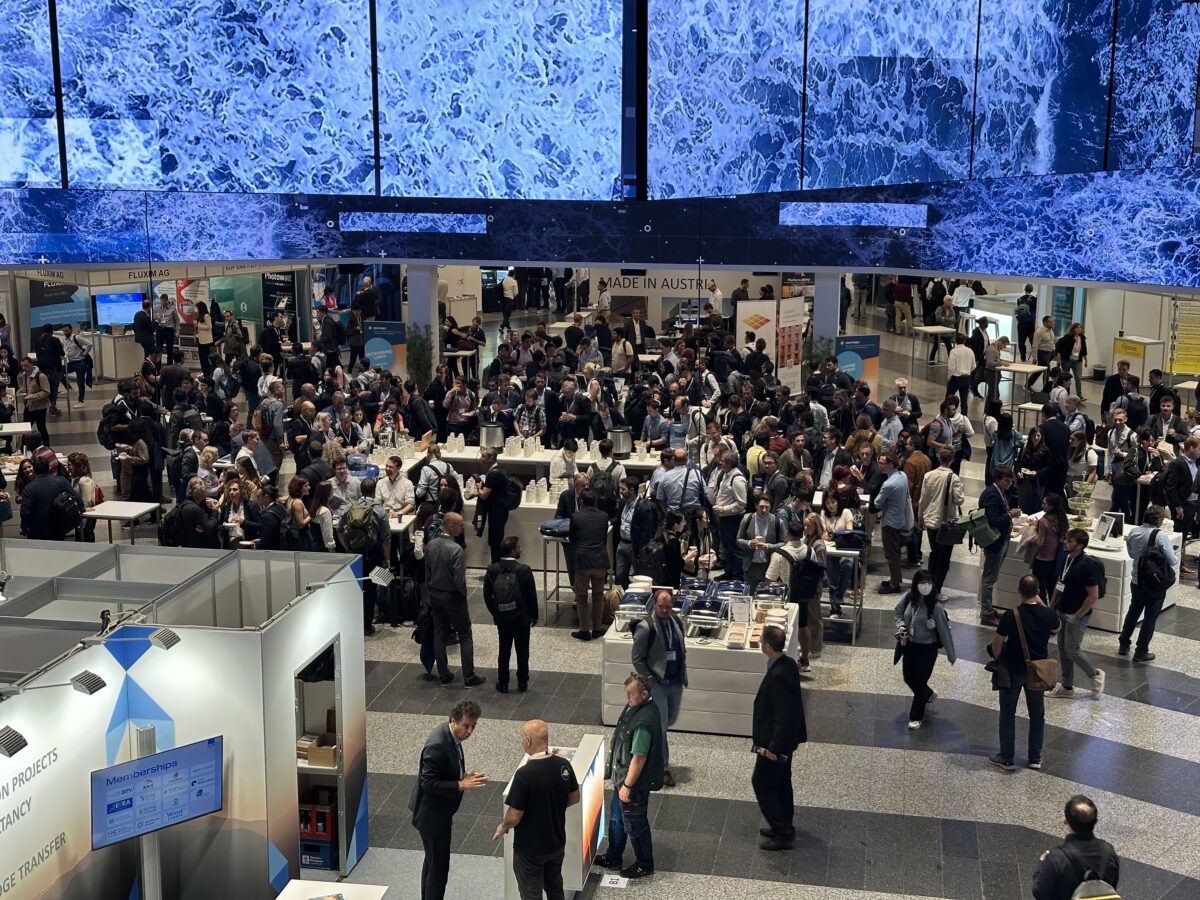Accepting the Becquerel Prize on Monday, for his contributions to photovoltaics research and industrial development, French scientist Daniel Lincot told the audience at EU PVSEC that work on solar energy “can’t stop at the door of the lab,” and that solar must develop further “to go to the people as a citizen’s energy.”
A fitting introduction to a conference that seeks to bring together the PV industry and research communities. This year, EU PVSEC was attended by 1,800 individuals from 60 countries and featured more than 1,100 presentations and panel discussions spread over five days. This year’s program went well beyond the typical research into reaching higher cell efficiencies.
During the opening session, Technical Programme Chair Robert Kenny noted an increase in paper’s presented in the field of PV systems and engineering, and later stated: “I would highlight the need to identify where we should prioritise deployment of large amounts of PV, and we are seeing much hands-on experience of systems in a range of sectors, such as agrivoltaics, BIPV, and floating PV.”
Sessions covering these specific applications, as well as efforts to integrate more PV generated electricity into electricity networks, illustrated PV’s inherent flexibility, and also the growing need for such applications to complement ‘conventional’ solar installations. Also speaking during the opening session on Monday, Austria’s Minister for Climate Action, Environment, Energy, Mobility, Innovation and Technology, Leonore Gewessler called on the experts gathered in Vienna to focus on “actionable ideas to make the energy transition happen faster,” that her and other policy makers can move forward with.
Christian Thiel, of the European Union’s Join Research Centre, noted optimistically that he expects to see more than 1 TW of PV installed within a single year this side of 2030, and for Europe to be the first carbon neutral continent by 2050.
Manufacturing outlook
For European manufacturing, however, the picture is less rosy. Following a presentation from 3Sun’s Marina Foti on the company’s cell and module factory in Sicily, an audience member asked how they would continue following struggles and shutdowns at other European manufacturers. And Foti noted that increased policy support would be necessary for manufacturing in Europe to come anywhere close to competing with other regions.
Rutger Schlatmann, head of solar energy at Helmholtz-Zentrum Berlin, warned that “upstream is not going so well for Europe” and said PV’s “massive innovation potential should not be left to one region.” He also noted that vested interests from other industries and their strong influence on policy may be holding back renewable energy development.
Others noted that even starting small could provide Europe with a better chance for future manufacturing capacity, and that Europe needs to maintain large industries, whether solar or not.
“We won’t see Chinese scale in Europe, but we must take lessons from it,” Futurasun CEO Alessandro Barin told a panel discussion. “And you need to start somewhere, like module assembly, for example.”
This content is protected by copyright and may not be reused. If you want to cooperate with us and would like to reuse some of our content, please contact: editors@pv-magazine.com.




By submitting this form you agree to pv magazine using your data for the purposes of publishing your comment.
Your personal data will only be disclosed or otherwise transmitted to third parties for the purposes of spam filtering or if this is necessary for technical maintenance of the website. Any other transfer to third parties will not take place unless this is justified on the basis of applicable data protection regulations or if pv magazine is legally obliged to do so.
You may revoke this consent at any time with effect for the future, in which case your personal data will be deleted immediately. Otherwise, your data will be deleted if pv magazine has processed your request or the purpose of data storage is fulfilled.
Further information on data privacy can be found in our Data Protection Policy.